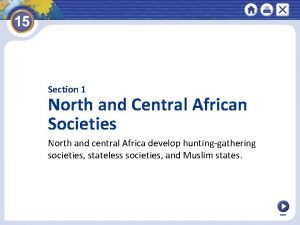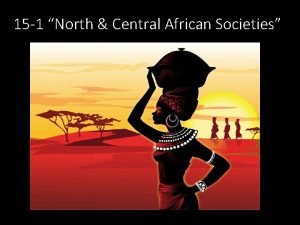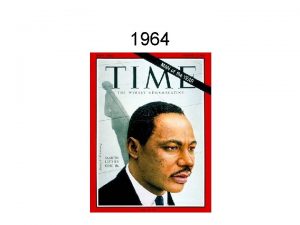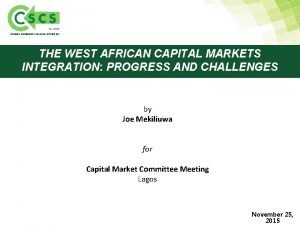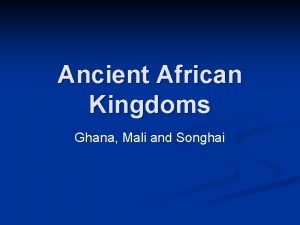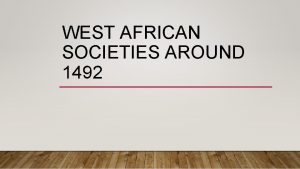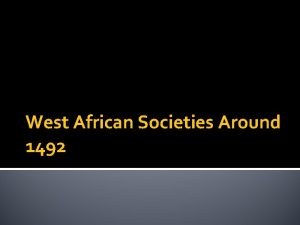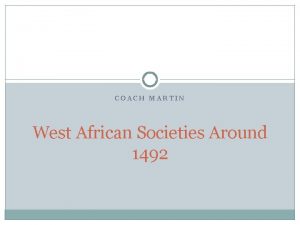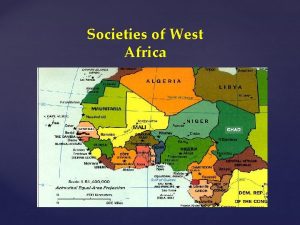1 3 West African Societies Around 1492 West






- Slides: 6

1. 3 West African Societies Around 1492 West Africa in the 1400 s is home to a variety of peoples and cultures.

I. West Africa Connects with the Wider World A. The Sahara Highway • Trading network connects West Africa to North Africa, Europe, Asia • Traders bring Islam; by 1200 s court religion of Mali, later Songhai B. The Portuguese Arrive • By 1470 s, Portuguese have coastal outpost near Akan goldfields • Direct trade creates closer relations with Europe • Portuguese begin European trade in West African slaves • First slaves work on plantation —large farm with single crop http: //www. history. com/shows/man kind-the-story-of-all-ofus/videos/african-slave-trade

II. Three African Kingdoms Flourish A. Songhai • In mid-1400 s, Songhai controls Sahara trade; gains wealth, power • Sunni Ali rules 1464– 1492, conquers largest empire in area’s history • Askia Muhammad is master organizer, devout Muslim, scholar • Timbuktu again becomes great center of Islamic learning • Songhai control savanna (dry grasslands) but not forest area • Other kingdoms thrive in coastal rain forest

B. Benin • Forest kingdoms trade with Songhai, North Africa, Portugal • Benin dominates large area around Niger Delta • Oba, or ruler, controls trade, district chiefs, metal work C. Kongo • Kongo —many small kingdoms in rain forest, lower Zaire (Congo) River • Manikongo, or ruler, oversees empire of over 4 million people • Kongo system of government very similar to that of European nations

III. West African Culture A. Family and Government • Lineage —common descent—decides loyalty, inheritance, marriage • Oldest relative controls family, represents family in group councils • Group shares language, history, often territory; has one chief B. Religion • All things have spirits; ancestor spirits visit elders in dreams • Most cultures believe in single creator; spirits do his work • Christian, Muslim rule of not worshipping spirits source of conflict

C. Livelihood • Make living from farming, herding, hunting, fishing, mining, trading • Land owned by family or village; individuals farm plots D. Use of Slave Labor • Slaves are lowest social group; slavery not inherited or permanent • Slaves freed through adoption by owners, marriage, other means

